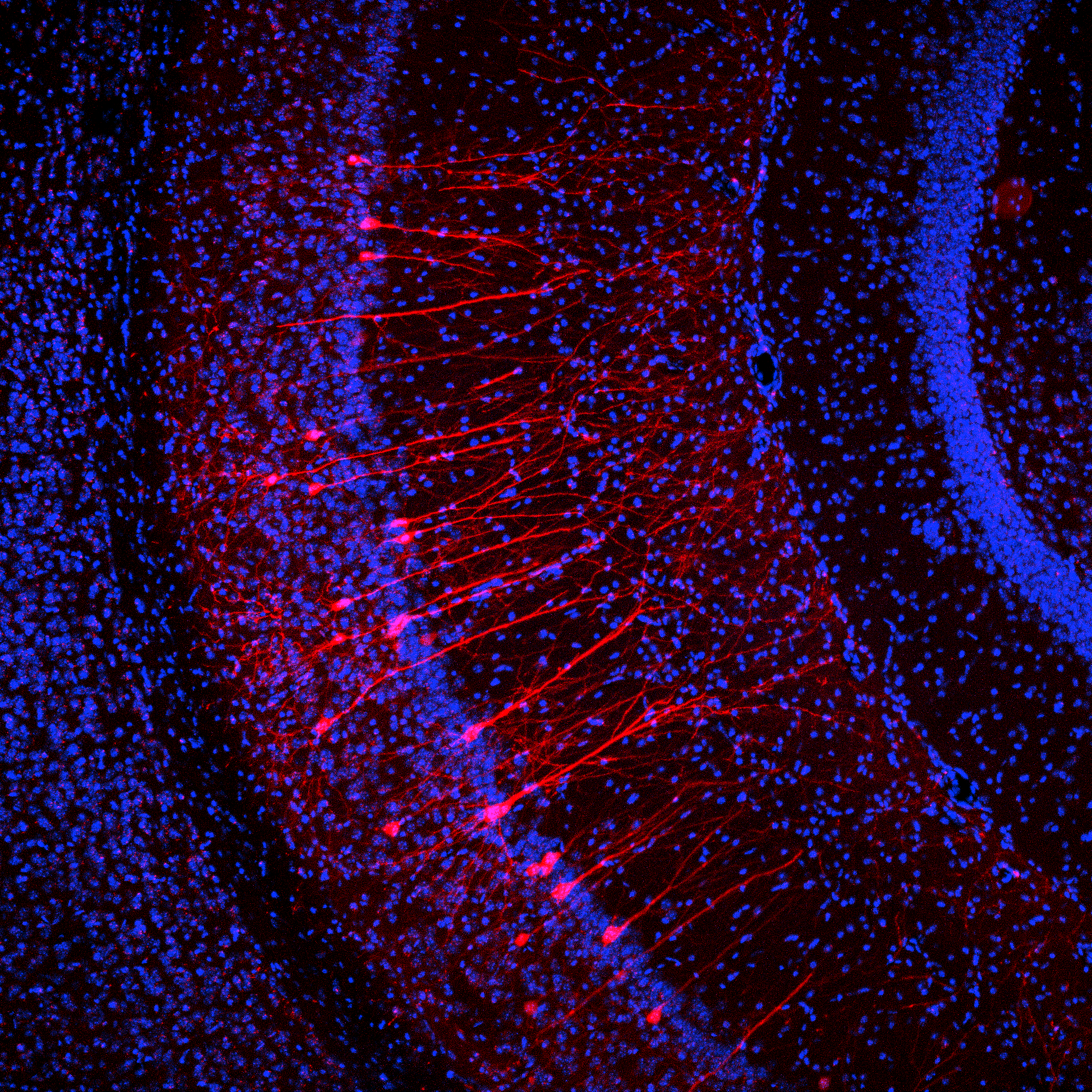
Publications

(Radio)active neurogenesis in the human hippocampus
Kheirbek MA, Hen R (2013)
Cell
Fifteen years ago, the generation of new neurons in adulthood was documented in the human hippocampus, but lingering questions have remained about the extent of this process. In this issue of Cell, Spalding et al. provide elegant evidence for continued neurogenesis into adulthood at rates that suggest it may play a significant role in human behavior.

Repeated corticostriatal stimulation generates persistent OCD-like behavior
Ahmari SE, Spellman T, Douglass N, Kheirbek MA, Deisseroth K, Gordon JA, Hen R (2013)
Science
Although cortico-striato-thalamo-cortical (CSTC) circuit dysregulation is correlated with obsessive compulsive disorder (OCD), causation cannot be tested in humans. We used optogenetics in mice to simulate CSTC hyperactivation observed in OCD patients. Whereas acute orbitofrontal cortex (OFC)–ventromedial striatum (VMS) stimulation did not produce repetitive behaviors, repeated hyperactivation over multiple days generated a progressive increase in grooming, a mouse behavior related to OCD. Increased grooming persisted for 2 weeks after stimulation cessation. The grooming increase was temporally coupled with a progressive increase in light-evoked firing of postsynaptic VMS cells. Both increased grooming and evoked firing were reversed by chronic fluoxetine, a first-line OCD treatment. Brief but repeated episodes of abnormal circuit activity may thus set the stage for the development of persistent psychopathology.

Differential control of learning and anxiety along the dorso-ventral axis of the dentate gyrus
Kheirbek MA, Drew LJ, Costantini DO, Burghardt N, Tannenholz L, Ahmari SE, Zeng H, Fenton AA, Hen R (2013)
Neuron
The dentate gyrus (DG), in addition to its role in learning and memory, is increasingly implicated in the pathophysiology of anxiety disorders. Here, we show that, dependent on their position along the dorsoventral axis of the hippocampus, DG granule cells (GCs) control specific features of anxiety and contextual learning. Using optogenetic techniques to either elevate or decrease GC activity, we demonstrate that GCs in the dorsal DG control exploratory drive and encoding, not retrieval, of contextual fear memories. In contrast, elevating the activity of GCs in the ventral DG has no effect on contextual learning but powerfully suppresses innate anxiety. These results suggest that strategies aimed at modulating the excitability of the ventral DG may be beneficial for the treatment of anxiety disorders.
Preview by Fournier and Duman (pdf)
